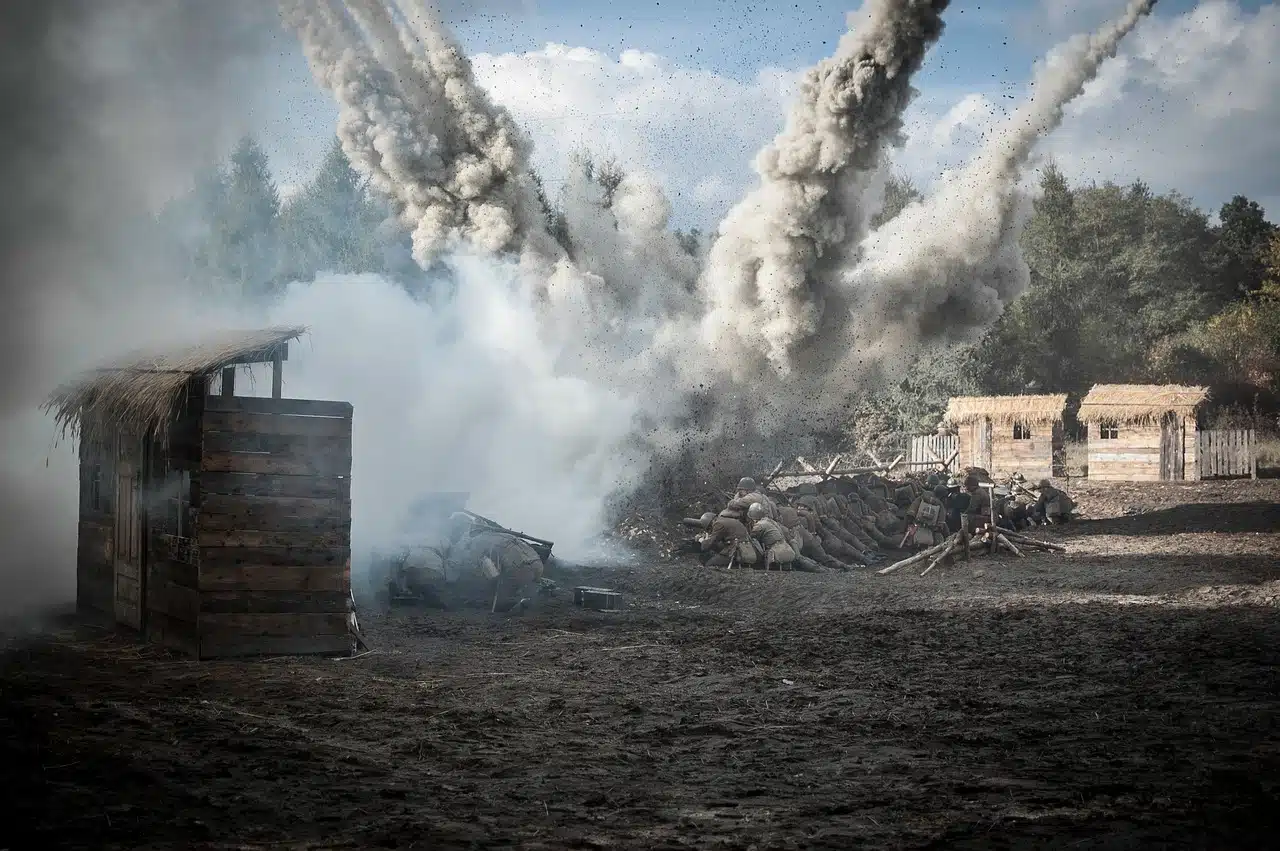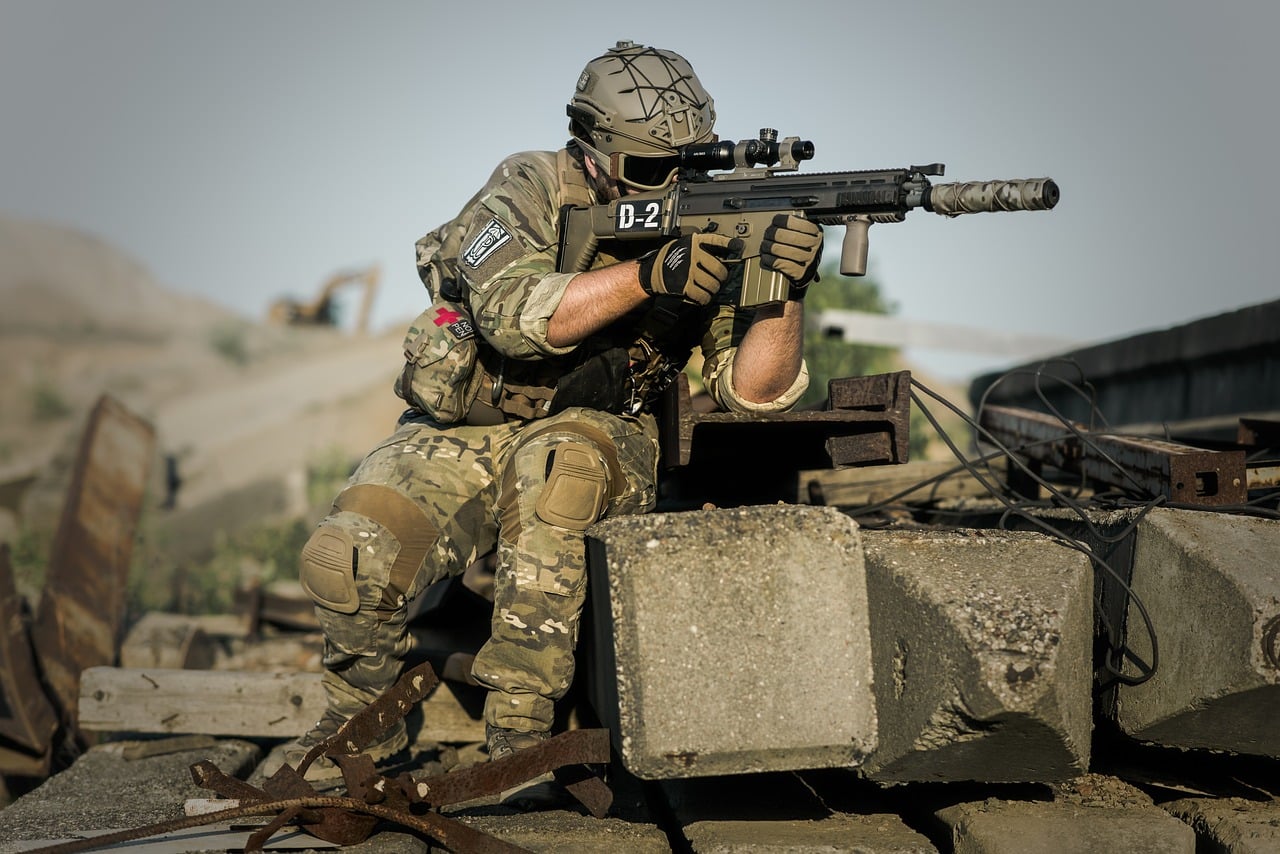
A war is a military conflict between two or more sides or nations.
War is the armed struggle or warlike conflict between two or more nations or sides, according to its most common meaning. This implies the breaking of a state of peace , which gives way to a confrontation with all types of weapons and which usually generates a high number of deaths.
The term is related to notions such as combat , battle , fight , fight or confrontation . In general, all these concepts are interchangeable and synonymous, although each one has a specific use that suits it best. For example, it is correct to talk about a "fight between boxers" , but not a "war between boxers" .
Types of war
War can be classified in different ways according to its characteristics. A preventive war is one that a nation starts with the argument that another country is preparing to attack it. This type of initiative has been proposed by former US President George W. Bush in Iraq .
A civil war is one that involves the inhabitants of the same town or country. In these cases, there is no direct interference from other countries. For example: the confrontation between the guerrilla, the army and the paramilitaries in Colombia .
Holy war is one promoted for religious reasons. Currently, certain Muslim groups are those who undertake violent actions framed in this context.
Actions that are carried out outside any legal or declared framework are known as dirty wars . An example of a dirty war was the fight against the Argentine guerrilla in the '70s .

Wars usually cause a large number of deaths, as well as considerable material damage.
Moral and psychological use of the term
We can mention that war is also used as combat or opposition in the moral and psychological sense .
There is even the concept of a cold war , when two or more nations attempt to undermine the enemy political regime through economic influence, propaganda, and espionage , but without direct violence.
Tolstoy's "War and Peace"
Vladimir Nabokov once said that when he read Leo Tolstoy , it was because he couldn't put the book down. And surely that is so; In fact, one of the most fabulous and incredible novels of all time is without a doubt "War and Peace" , by this author. An impressive treatise that raises fundamental questions for life in society .
In this story, the Russian writer explores those philosophical problems that have worried human beings since the origin of the world, related to love, good and evil.
One of the most chilling and unique images is when the protagonist, Andrei Bolkonski , is lying on the battlefield and while he sees Napoleon approaching him in the distance, he stares at the sky and tries to understand what exists behind of his pain, what is the true mystery of existence . He says that Bonaparte , that man whom many fear, seems like a tiny being compared to the top of the sky, where the clouds slide and so much life is wielded.
We can also find extremely profound reflections on the human capacity to love and how weak the line is between love and hate . For example, at one point the author says that there is no truth more necessary and real than that of love and the ability to enjoy the small moments of life; and then expresses that the worst evils in life are remorse and illness , because there is little that can be done to overcome both.
On the other hand, it is a true history book that allows you to know what the Napoleonic Wars consisted of and what they left in the world. It is worth mentioning that Tostoi visited Borodino with the aim of knowing the subject for sure and properly mapping out the battlefield that he presented in the novel.
To finish, it only remains to say that this is a perfect self-help manual , which can help readers understand why they were born and for what, and be aware that their own actions can be decisive for the future of the planet and society. humanity.
